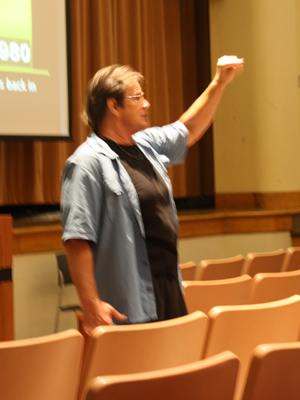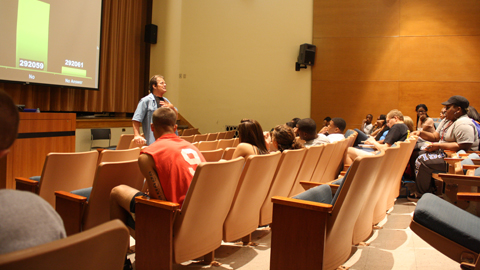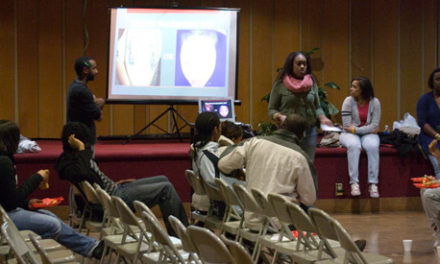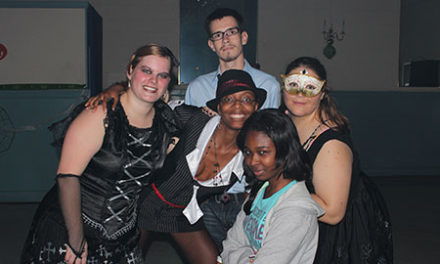By:Â Bianca Bailey (Whetstone Staff Writer)
Students engaged in the first freshmen seminar of the year, “Beer, Booze and Books,†when speaker Jim Matthews began by talking about himself.
Having gone to college in the 1960s, Matthews admitted that he experimented several drugs on his campus, and he consumed a lot of alcohol.
“Most kids learn that they should not drink before they turn 21,†Matthews said to the crowd. “They [know they] should not drink and drive.â€
Matthews said he believes that kids should learn more references to alcohol, drunk driving, and drugs before they go to college.
Students participated in Matthews’ lecture by using their cell phones to answer poll questions. The questions included amount of alcohol consumption, sexual activity frequency, and study hours.

Matthews also showed clips from different Disney films and various party films, such as Superbad, which show underage drinking.
“Many college students rely on alcohol to socialize, which is a major problem,†he said. “This is due to the fact alcohol lowers inhibitions as well as control.â€
Freshmen were not the only students in attendance. Some professors made attendance a requirement or an extra-credit assignment.
“Because I am 21, I have a different outlook on alcohol,†senior Khalil Norris-Jermott said. “However, just knowing some of the facts allows me to see how alcohol can affect the average student and how important it is to do things like drinking and partying in moderation.â€
Freshman Kaheem Reynolds said he enjoyed the lecture.
“[The lecture] was informative and I enjoyed the jokes and things he made while teaching me that college is not always about drinking and having fun,†he said.
Matthews said that he likes to “read the crowd.â€
“Some of the things I said can have different effects on students.,†Matthews said. “When I talk about the ‘family side’ of alcohol and not the ‘party side,’ many students get serious and quiet. You can see when it affects them individually, like they have had to deal with it in their lives personally.â€
Matthews also said there need to be better ways to handle substance reliance.
“There isn’t always an addiction, “ he said. “Sometimes people, such as myself, deal with substance abuse disorders where it is not an addiction, but can still have the same devastating effects. My goal is to not tell them to drink, but watch out for the signs of the problems.â€






